

Updated: 2024-02-09
On the evening of Feb 6, 2024, Beijing time, in the Mohamed Bin Zayed International Robotics Challenge (MBZIRC 2024) held in Abu Dhabi, the United Arab Emirates, the 'Feiying Team' from the Beijing Institute of Technology (BIT) once again achieved excellent results, being the only Chinese participating team in the finals to complete multiple tasks.
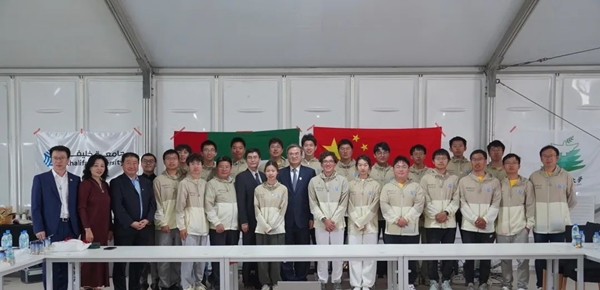
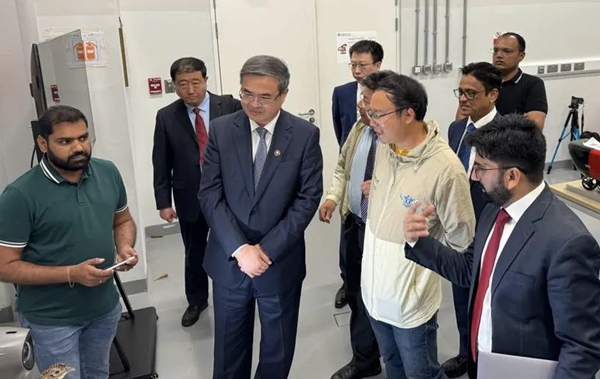
On Feb 1, Academician Zhang Jun, secretary of the CPC BIT Committee, visits the preparatory base to exchange ideas with, and to cheer on, the participating faculty and students. [Photo/english.bit.edu.cn]
MBZIRC (2024) is a top international robotics challenge hosted by the UAE government, and attracted top scientific research institutions from many countries in Europe and the Americas. The participating 'Feiying Team' for this year’s competition is jointly made up of students from the Beijing Institute of Technology and the Khalifa University of the United Arab Emirates.
After multiple rounds of selection over three years, they stood out from nearly 200 participating teams, defeating those from many top international research institutions such as the Massachusetts Institute of Technology, University of Pennsylvania, Carnegie Mellon University, and Nanyang Technological University of Singapore, successfully advancing to the finals as the only Chinese participating team among the five finalists.
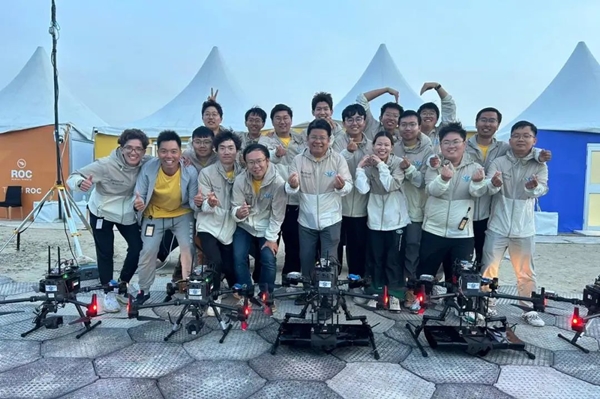
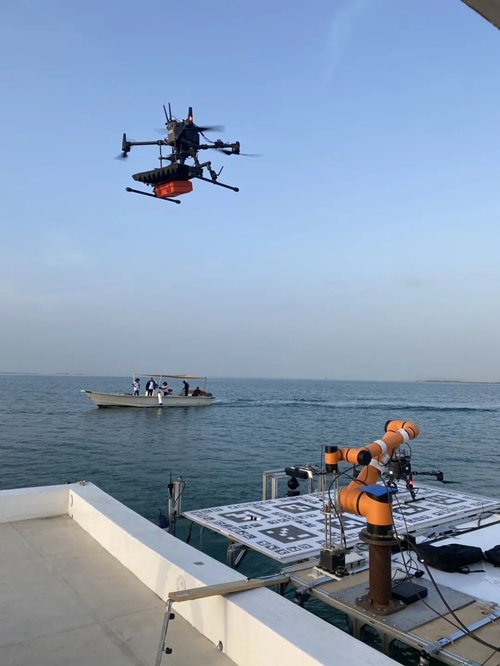
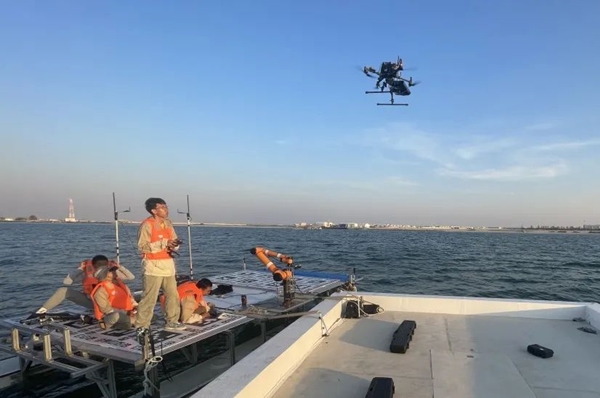
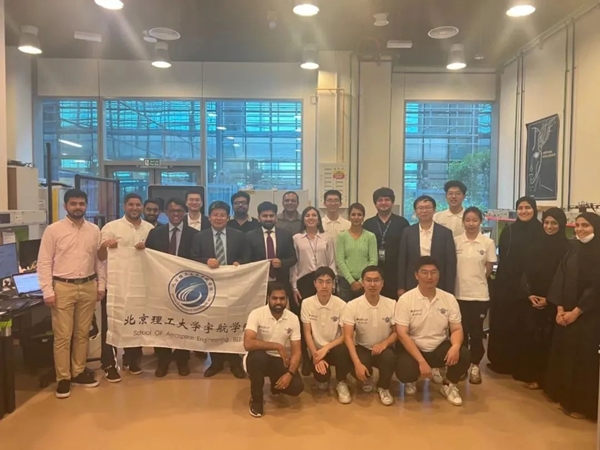
Members of the "Feiying Team" at the MBZIRC 2024 [Photo/english.bit.edu.cn]
The competition requires participating teams to complete the tasks in the areas of satellite signals denial, wide-area search, close-in reconnaissance and coordinated handling under complex environmental conditions within a 10-square-kilometer maritime area using unmanned systems composed of multiple drones, unmanned boats, and robotic arms. It poses higher challenges in terms of the autonomous perception, situational awareness, intelligent decision-making, and collaborative disposal capabilities of the unmanned systems.
Facing the complex operational environments, the inability to use GPS for the entire system, and the uncertainties introduced by the integration of the referee system, the team members repeatedly debugged, reviewed, and optimized the process, successfully expanding the system from air-ground, air-air to air-ground-sea. They achieved solid technical performance in maritime wide-area search, small object grasping, and large object recognition, becoming the team with the highest task-completion level within a specified time limit.
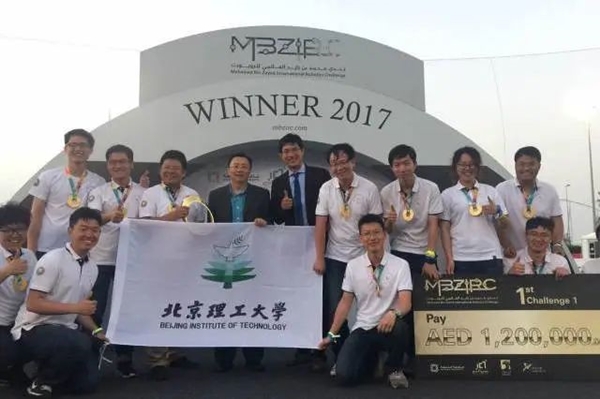
Members of the "Feiying Team" at the MBZIRC 2024 [Photo/english.bit.edu.cn]
During the competition, Khalifa University provided excellent technical and logistical support for the "Feiying Team". Their successful cooperation in the competition is attributable to the deep friendship and collaborative basis between the two universities. For many years, the two universities have carried out in-depth cooperation in the field of intelligent unmanned systems, and created a classic model of cooperation between the two countries' research institutions.
The "Feiying" Team from the School of Astronautics of BIT is a university student science and technology innovation team consisting of undergraduate, master, and doctoral students, and its members are selected from across the entire university. Relying on the Institute of Unmanned Aerial Vehicle Autonomous Control in conducting their technological innovation work, the team actively explored the application of cutting-edge artificial intelligence technologies on drones. Since its establishment, the "Feiying" Team has won numerous awards in both domestic and international competitions.
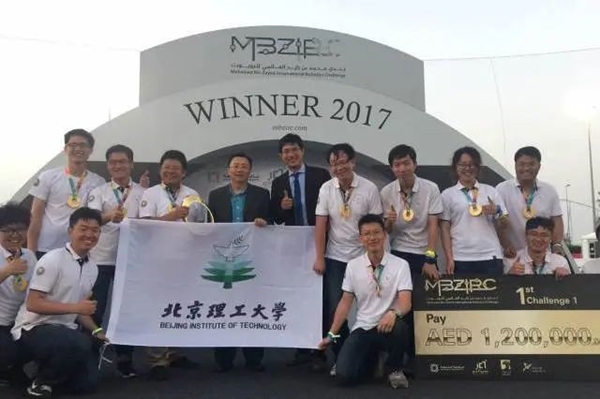
In 2017, the team wins the championship of the Mohamed Bin Zayed International Robotics Challenge. [Photo/english.bit.edu.cn]
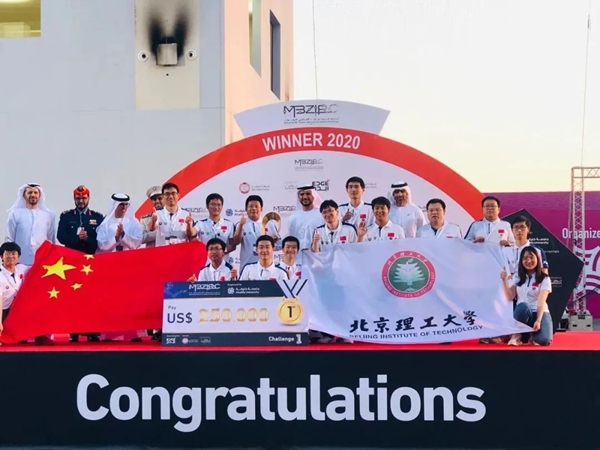
In 2020, the team wins the championship of the Mohamed Bin Zayed International Robotics Challenge (MBZIRC2020). [Photo/english.bit.edu.cn]














